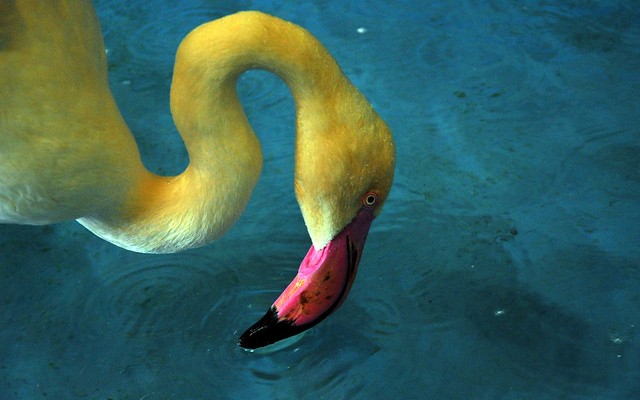‘You think she’s really in there?’
‘Nah. No.’
Felicity has her arms folded over the railing, chin pressed down so she can peer at the tannin river below. It’s hard to imagine jumping from there now, on a morning so cold. The water seems much further than it did a couple of weeks ago.
‘Maybe she ran off to Dougie’s. She always said she was gonna do that.’
Felicity doesn’t move. I lean beside her and we watch as the workers wade deeper out into the water in high-vis, nets and rakes strung between them. My stomach churns imagining the tines of their tools, pulling up the carp-riddled mud of the river bottom.
There are kids from town dotted along the bridge, scuffing at the tarmac with their shoes, chewing gum. We’re all looking down over the railing. Except for Peter. He’s barefoot and staring up at the trees, rather than the river walkers. His sleeves are pulled down over his fingers. Nobody talks above a murmur. Anything more than that would fracture the quiet of the riverside, the bridge, the sleeping gums, and the workers below. Anything more would threaten to make the object of the workers a reality, would call Mish up from the muddy depths. I curl my toes in my sneakers. Not here, not here. Surely the river is too shallow for that.
‘Remember—’
‘Yeah.’
We had all turned up at the bridge that morning, by bike, foot, bus, without having spoken about it.
‘And—’
‘Yeah.’
Mish had never shied from jumping off the levee, even when rains had churned the water up, dragged branches and logs and rubbish, hard plastics and children’s toys downriver to collect as ragged teeth below the surface. She had always jumped, no pause for breath. Mish was always there.
Then there’d been the empty school desk. Then the newspaper, stained by peanut butter. I’d sat the jar on it at breakfast. I hadn’t even noticed what was written, until Dad tugged it free and read it out.
‘Mish? You knew her, didn’t you?’
Dad spoke in past tense. I got on my bike right after.
On the bridge, something shifts between us kids. Peter’s back has gone rigid under his threadbare jumper. One of us lets out a wheeze, a shout gone the wrong way, swallowed up.
Down, on the far bank, a worker in orange, with a face drawn and pale in the cold, turns, and raises a single hand to the sky.
Image: Mario/Flickr
 Read the rest of 234.5: an autumn fiction edition with 16 editors!
Read the rest of 234.5: an autumn fiction edition with 16 editors!
If you enjoyed this special edition, subscribe and receive a year’s worth of print issues, the online magazine, special editions and discounted entry to our literary competitions



